20 | 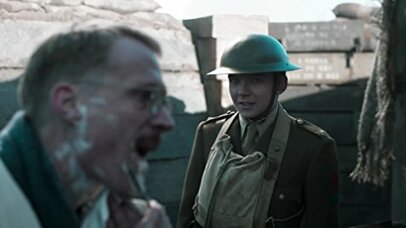 Journey's End The fifth adaptation of an English play that commemorated the 10th anniversary of the end of World War I got a release commemorating the armistice's 100th anniversary. After all that time, the senseless injustice of the whole affair is still enraging and poignant in Saul Dibb's film. Featuring achingly resigned performances from its cast, particularly Paul Bettany's stalwart officer, Journey's End is the rare war film that can measure up to the legacy of works like Paths of Glory and Come and See, draining the endeavor of any nobility and leaving only the diminishing will to make it through one more day. |
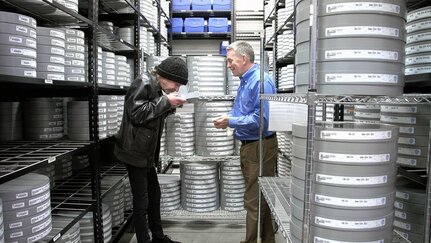 Filmworker Tony Zierra's documentary demands the viewer sit through the credits. Not because of any kind of extra footage or memorable song that plays over them, but because Filmworker demands respect for everyone that makes any given film happen. Directors like Stanley Kubrick get all the credit, but he might not have been a tenth as productive without dedicated acolytes like Leon Vitali, an actor-turned-assistant to the English master who coaxed memorable performances out of novice actors in Kubrick's later films and ensured that his earlier films have been successfully transferred to new formats. Any documentary with a good excuse to include scenes from Kubrick's film automatically gets to watchable, and Vitali's charisma, passion, and dedication to a tyrant even after the tyrant's death pushes Filmworker to the next level. | 17 |
16 | 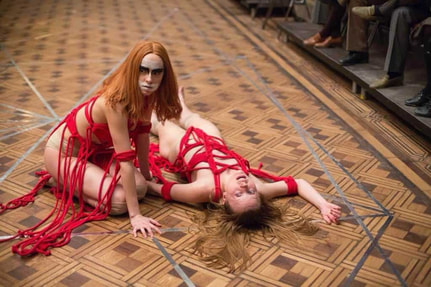 Suspiria Dario Argento's horror staple gets a much needed remake, shedding light on what's actually happening in a German ballet studio while retaining the stylishness and the gonzo craziness. Luca Guadagnino perhaps spells things out a bit too clearly, but his version of Suspiria radiates with a dread and paranoia suitable for the 70's Berlin setting before cresting into Grand Guignol rituals that skirt the edge of madness. Tilda Swinton's omniscient witch casts a long shadow over the film, the editing is the best of the year, and Guadagnino creates set piece after set piece where the breath catches in one's throat. |
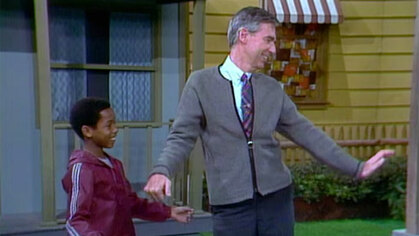 Won't You Be My Neighbor? A dose of sanity and kindness for frustrating times, Morgan Neville's documentary about Fred Rogers embodies the warmth and openness of its subject. A surefire tear generator for even the most cynical of viewers, Won't You Be My Neighbor inspires depths of feeling with its use of archival footage from the news and Rogers' show. The rabid racist dumping bleach into a swimming pool full of black children might have had his own children who watch Mr. Roger's Neighborhood, and hopefully got better instruction on what manhood is from the earnest stranger on their screens than their patriarch. Neville reveals that the choice to be loving at all opportunities came hard even for Rogers, making the icon into a real human, and all the more impressive for it. | 15 |
14 | 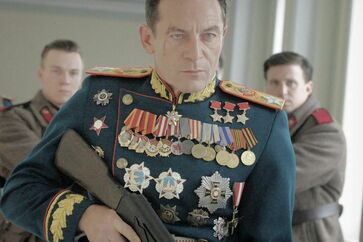 The Death of Stalin Armando Ianucci, fresh off of Veep's verbally caustic and morally empty politicos, moves into a world where the wrong word results in imprisonment or execution instead of an awkward press conference. Despite the skyrocketing stakes, he still can't help but make a riotous film. The Death of Stalin, about the time in the Soviet Union immediately before and after the titular event, provides Ianucci with another chance to do what he does best: skewer the pretensions of the powerful by showing them at their most grasping and pathetic. That he can maintain a tone that allows for both acerbic bon mottes and accurate glimpses into KBG horror shows is a cinematic miracle and is one more piece of evidence in the picture of Ianucci as one of the most capable modern satirists. |
 Summer 1993 The melancholy gorgeousness of Carla Simon's Summer 1993 serves as both a travelogue for rural Spain and a venue for a sensational child performance. Laia Artigas stars as a recently-orphaned girl moving from the city, where her parents and grandparents doted on her, to the country to live with her decidedly less fawning aunt and uncle. Simon shows herself to be this year's Sean Baker, getting as naturalistic behavior out of her child actors as Baker did in the Florida Project. Summer 1993 is wholly irresistible from start to surprising finish. | 11 |
10 | 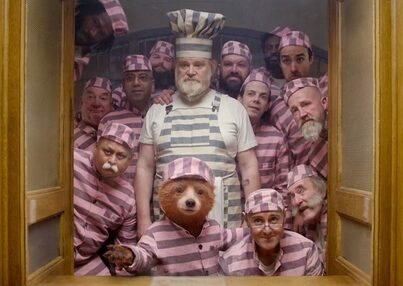 Paddington 2 The sequel to a well regarded but little noticed family film, Paddington 2 set the winter of 2018 on fire with effusive praise for director Paul King and his warm-hearted fuzzy protagonist. Paddington, voiced by Ben Whishaw, is aided in critical apotheosis by series newcomers Brendan Gleeson and Hugh Grant, both playing up pieces of their personas to stunning effect. Replacing the Rube-Goldberg-ian comedies of errors from the original with transcendent tracking shots through fantastical settings, Paddington 2 can only leave the viewer with a tear in their eye and smile on their face. The titular bear's motto, if you're kind and polite, the world will be right, makes the film an appropriate two-fer with Won't You Be My Neighbor, another 2018 winner that believes in goodness down to its bones. |
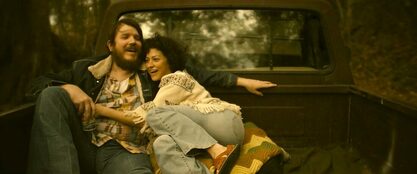 Blaze Ethan's Hawke's stellar entry from behind the camera (stay tuned) provides him with a mission to reinvent the musical biopic. His Blaze tells a broken narrative of Blaze Foley, an outlaw country/folk singer who never found much success but who enjoys a healthy, mythic reputation amongst his fellow musicians. His relative anonymity means that there aren't any well-known signposts to pay homage to; just a man with raw talent and the inability to turn it into hard currency. Co-written by Blaze's ex-lover Sybil Rosen, Blaze has the Linkater-esque feel of truth and lived-in anecdotes, and is the kind of film that sneaks up on the viewer with its simple, rustic beauty. | 9 |
8 | 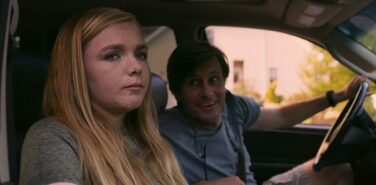 Eighth Grade In discussing why he made his directorial debut about a teen girl instead of a teen boy, comedian-turned-auteur Bo Burnham says that in an online environment, boys talked about Minecraft nonstop while it was the girls who talked about their feelings. Kayla Day, played by Elsie Fisher, has plenty of feelings to talk about, but no one's listening. Eighth Grade has funny bits, but it plays like a horror film, a toe-curlingly awkward depiction of social anxiety and self-doubt, both of which are exacerbated by the Instagram pages Kayla incessantly scrolls through. No kids-these-days screed or anti-technological rant, Burnham is purely interested in how a staple developmental period is being currently lived and altered, if at all, by having so many forums for expression. Eighth Grade will feel like a historical document in ten or fifteen years, as it sure seems like he and Fisher nail it. |
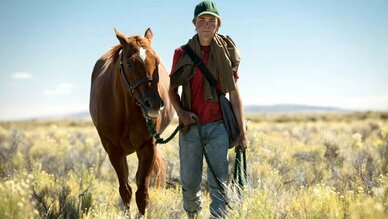 Lean on Pete Andrew Haigh's boy-and-his-horse adventure serves as part travelogue for Northwestern expanses and part evocation of bone-deep sadness. Charlie Plummer's lead performance is of a character who is closed off and incapable of asking for the help he clearly needs, but the actor himself is so open and vulnerable that he's coming through the screen and begging the audience for respite. Lean on Pete tears the heart out of the viewer as its protagonist and his end-of-the-line sprint horse go through a tough few weeks. The stakes, beyond death from exposure on a Montana prairie, are the prevention of disillusionment, a state that so many other characters are shown to have gone through. Haigh and Plummer leave it an open question to the piercing end. Plus, any film as reverent to servers as this one knows what it's talking about. | 7 |
6 | 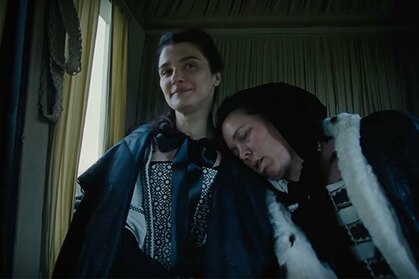 The Favourite A man from the birthplace of democracy lacerating the absurdities of monarchy, Yorgos Lanthimos uses his scalpel with a deft hand. The Greek director isn't working with his usual writing partner in The Favourite, nor is his cast utilizing Lanthimos' trademark deadpan style of dialogue, but these changes are no matter for a mind as unique as his. With a triumvirate of actresses in pitch perfect form, this tale of the fragile Queen Anne and the two women competing for her favor foregrounds female power, leaving the men to ineffectively flounce around in the background. In typical Lanthimos form, nothing is so simple as a girl-power yell, and he saves his harshest criticism for any system of power that rests on the impermanent feelings of a single individual, be they royal courts led by a gouty, insecure slob or oval offices that probably smell like tanning oil and fast food farts. |
 Tully Jason Reitman reunites with Diablo Cody and Charlize Theron for the best film of his career after years in the wilderness. Tully is a critique of how society views pregnancy and new motherhood, a raw depiction of its main character played by Theron, and a warm picture of supportive female friendship, all of which alternate between humor and rage, between tension and serenity. The film feels like an unadorned peek into the true, unfiltered life of any family, with all the frustrations and fleeting moments of joy that come with it. Cody has a reputation for eccentricities in her characters, but Tully is her close to the ground in a perceptive, semi-autobiographical script. While Theron never needed a critical rehabilitation, Tully serves as one for Reitman and a reminder that this trio has a potent output. | 5 |
4 | 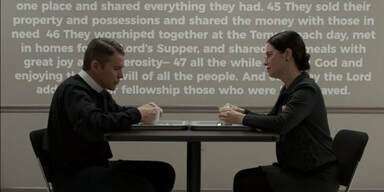 First Reformed The year's headiest film and one worthy of its New Hollywood pedigree, First Reformed infects the brain like a freshly poured sludge of Pepto Bismol into a glass of whiskey. Paul Schrader's God's Lonely Man subgenre finds another entry with Ethan Hawke's Father Toller, a depressed minister who feeds his torment into doomsday environmentalism. Hawke burns out of the screen with his tortured intensity and Schrader keeps finding ways to provoke and prod the viewer. First Reformed is a master's class in cinema and religion and philosophy, a film made with supreme confidence about the perils of supreme confidence. |
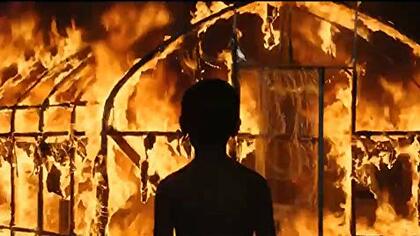 Burning Lee Chang-Dong's haunting mystery doesn't contain the biggest scenes of the year. It never even fully clues the viewer in to what's happened over the course of the film, but what Burning does is quietly burrow into the viewer's brain and set up shop, rising in estimation every time the film's subtle glances and hints and possibilities are mentally revisited. Its two male leads, one open-mouthed and awkward and the other calm and sure-footed, engage in doomed competition for the affection of Hae-mi, beautifully played by Jeon Jong-seo. Lee subverts manic-pixie-dream-girl tropes in his creation of Hae-mi, and Jeon Jong-seo inhabits her with so much life that it's beyond the character's ability to communicate it. There's only the big hunger, as she describes it, and the two men tragically unable to appreciate her. | 3 |
2 |  First Man The anti-Right Stuff, Damien Chazelle's heart-pounding fourth film continues his ascent as one of his generation's most singular filmmakers. First Man, a biopic about Neil Armstrong, is a film that practically writes itself, but Chazelle, writer Josh Singer, and star Ryan Gosling find a unique way in to the iconic astronaut. First Man gets the viewer as close as possible to the cacophony and chaos of test flights, all rattles and clanks until those perfect few seconds of apogee make the terror worth it. In Chazelle's telling, all that risk is needed to keep Armstrong distracted from grief caused by the death of a daughter. When Armstrong is standing on the moon, as alone as few people have ever been, there's nowhere left for him to hide, and a masterpiece cements its place in recent cinematic history. |
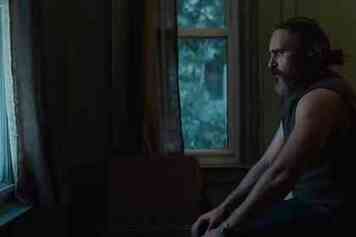 You Were Never Really Here The year's best film undercuts so many films like it. You Were Never Really Here's lead, played by Joaquin Phoenix like a mix between an exposed nerve and a battering ram, rescues sex-trafficked young women, but he's neither Equalizer nor Liam Neeson. A life of hiding from violence, witnessing it, and doling it out even in pursuit of a worthy goal have left Phoenix's Joe a despairing shell with little but a psyche full of nightmarish sense memories. Director Lynne Ramsay refuses to revel in gore and blood, no matter how monstrous the actions of the person it used to belong to. In perfect control of every detail, she hides the effects of Joe's hammer and instead gets deep in his mental scars, brought to trembling life by a bulked-up Phoenix. The transporting You Were Never Really Here puts its audience in its protagonist's head as effectively as any character study ever has, and while it's an unpleasant place to be, in the paraphrased words of one of Joe's rescued girls, tomorrow might be a beautiful day. | 1 |


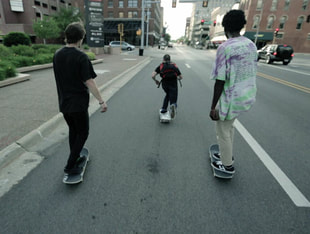
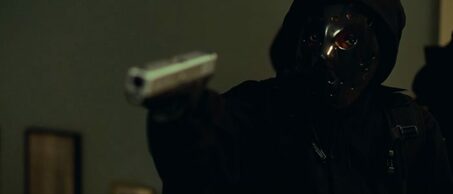
 RSS Feed
RSS Feed